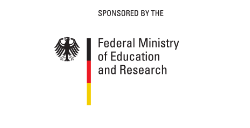
Making predictions about biological invasions
The Intergovernmental Science-Policy Platform on Biodiversity and Ecosystem Services (IPBES) Global Assessment's message is stark: biodiversity - the diversity within species, between species, and of ecosystems - is declining faster than at any time in human history. Alongside climate change, land and sea-use change, invasive alien species were identified as one of the five top direct causes of biodiversity change. Biological invasions can threaten biodiversity and ecosystems but also human health and economies, particularly through their interactions with other drivers such as climate change. The number of alien species arriving in new regions is increasing globally and there is no sign of slowing.
It is widely recognised that the most effective action against biological invasions is preventing the arrival of invasive alien species. Therefore, there has been increasing focus on horizon scanning to predict which invasive alien species pose an imminent emerging threat. Prioritising invasive alien species in the context of the pathways by which they might arrive can be informative for decision-making. Horizon scanning for invasive alien species that could arrive and pose a threat to biodiversity and ecosystems across Europe has underpinned prioritisation of invasive alien species for risk assessment and subsequently consideration for inclusion within lists of invasive alien species of concern. Invasive alien species can have multiple impacts spanning plant, animal, human and wildlife health; cross-sectoral sharing of information is critical to effective action.
I will share insights into invasion ecology from broad patterns and processes to approaches in surveillance and monitoring, including citizen science, with a focus on predicting biological invasions. I will highlight the importance of collaborative, interdisciplinary partnerships including the forthcoming IPBES global thematic assessment on invasive alien species. Networks established through these initiatives have benefits for people, science and nature.





